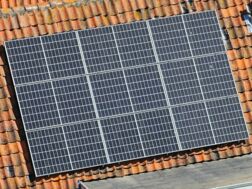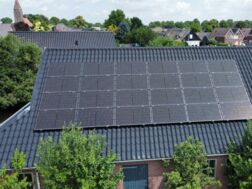From 1 July 2023, telecoms giants KPN and Ziggo will implement price increases in response to inflation. These changes will result in higher internet, TV and phone subscription costs. Ziggo's prices will rise by an average of 8.5%, while KPN is applying a 6.4% increase, capped at 4 euros per month.
In the Netherlands, inflation first jumped due to high energy and food prices. Then there are so-called second-round effects, where companies raise their prices because general prices have risen. This can be seen in subscription tariffs at Ziggo and KPN. Both companies implement price increases concerning inflation.
Ziggo is using 2022 inflation as the starting point for the price increase of subscriptions from 1 July 2023. This averaged 8,5%. Although inflation has since fallen somewhat in the Netherlands, it was still quite high at 5.7% in June.
KPN, on the other hand, has indicated that price increases will be limited to 6.4% per month, with a maximum increase of 4 euros per month. This is less than at Ziggo. In addition, KPN will increase the prices of its individual phone subscriptions by 1 euro per month from July.
Despite these price increases, customers can switch to another provider free of charge if the price increase exceeds the inflation correction. This is stipulated by law, and the provider must inform the customer in advance. The new provider will then arrange the termination of the old subscription.
It is important to note that you cannot cancel in case of an inflation correction or a price change due to new laws or regulations. However, if your provider increases your subscription price and there is no inflation correction or new laws or regulations, you can cancel free of charge and switch to a new provider.
These significant price increases result from large investments providers make in the network to meet the growing demand for faster and more reliable internet. Network capacity must be increased to allow more people to use a stable network simultaneously. This allows providers to continue to meet the ever-increasing data needs of their customers.
You will usually receive information about these changes via e-mail. Your provider should clearly state what will happen, and often a deadline is mentioned. If you do nothing, the change takes effect on the date mentioned, and you have tacitly agreed to it. Does this mean you have to pay more? If so, you are 'contract-free' from then on and can therefore switch. A price increase often means a higher increase than an inflation adjustment. It is, therefore, worth comparing prices if your provider will implement a price increase.
Are you contract-free?
You are contract-free if you can switch for free because of a price increase. Usually, you take out an internet subscription for 1 or 2 years. Due to the price change, this contract period expires, and you can switch immediately. Check your provider's terms and conditions carefully. Even when your contract term has expired, you are contract-free unless you choose to extend. In that case, you will enter into a new contract and cannot switch for another 1 or 2 years.





